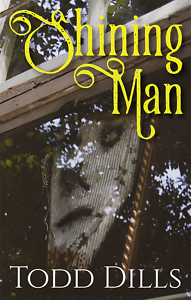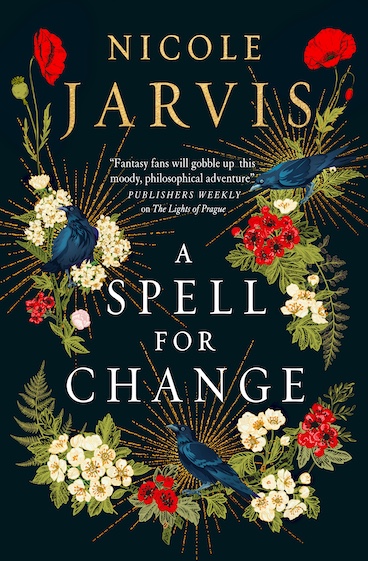Learning How To Be
In Shining Man, Todd Dills’ picaresque hero goes on a raucous journey of self-discovery
Todd Dills’ Shining Man gives new life to one of literature’s oldest genres, the picaresque. The story of the rakehell who journeys from town to town, falling into ribald scrapes at every stop, is as old as the novel itself, but in Dills’ hands it feels like a fresh invention.
 Shining Man follows the adventures of Cash (a mononym), a fry cook in Charlotte, North Carolina, who one day receives an unconfirmed message that his shiftless father has died. Cash sets off for his old man’s last known whereabouts, Chicago, thus instigating a sequence of events that will help him discover his true self and ponder life’s profound mysteries. And drink a lot of beer.
Shining Man follows the adventures of Cash (a mononym), a fry cook in Charlotte, North Carolina, who one day receives an unconfirmed message that his shiftless father has died. Cash sets off for his old man’s last known whereabouts, Chicago, thus instigating a sequence of events that will help him discover his true self and ponder life’s profound mysteries. And drink a lot of beer.
When the novel opens, Cash admits that he is stuck in a rut. A college graduate with no career plans, he slinks back to his hometown outside of Charlotte and finds work in a suburban mall. He lives in his mother’s basement, naturally, while his mother makes ends meet as a hairdresser. He neither hates nor pines for his father, whom he hasn’t heard from in years, but makes the journey north without a second thought. Cash calls it “scratching an itch.” Readers will recognize the Kerouacian desire to hit the road.
“I am a stupid man!” Cash announces in the prologue, a scene that foreshadows his forays into stock car racing, performance art, and random violence. What he means by stupid evolves over the course of the novel, usually describing qualities (self-interest, material ambition) that are cynically classified as smart. “Second-guessing,” anathema to successful people, is an automatic reflex for “stupid people of my ilk” who spend their lives “in struggle to subvert the mind to bring it to harmony with the body.” This kind of stupidity is hard work.
 In Chicago, Cash finds little trace of his father, only boxes full of reflective vests, which he cuts up and sews into a full-body suit — why, he doesn’t know. Arrayed in this sartorial splendor, he wanders onto the freeway at night, extending his arms in a Christ-like pose as headlights radiate off him magnificently. His traffic-stopping antics attract the attention of police, but he is saved by locals who find Cash’s recklessness a kind of guerilla art. Soon a group of them are donning similarly resplendent suits as part of a “Shining Man” exhibit sponsored by an art gallery.
In Chicago, Cash finds little trace of his father, only boxes full of reflective vests, which he cuts up and sews into a full-body suit — why, he doesn’t know. Arrayed in this sartorial splendor, he wanders onto the freeway at night, extending his arms in a Christ-like pose as headlights radiate off him magnificently. His traffic-stopping antics attract the attention of police, but he is saved by locals who find Cash’s recklessness a kind of guerilla art. Soon a group of them are donning similarly resplendent suits as part of a “Shining Man” exhibit sponsored by an art gallery.
Caught up in this swirl of activity, Cash allows himself to move with the flow of events — not passive, exactly, but with no intention other than to explore what the next moment provides. “I was a pod in the throes of movement, of action, of the outward-rippling effects of my own puny force,” Cash thinks. “I was learning how to be, simply.”
Cash pauses frequently to contemplate the meaning of his actions. Are the shining suits, for instance, an attempt to capture “elegiac light and truth” in honor of his missing father, or has his “quest for light” instead “blinded me to the possibility of knowledge, of candor”? A self-described “hopped-up theorist,” Cash never commits to his ideas, his mind remaining as rootless as his body.
Dills, a Nashville resident, seems particularly galvanized by Cash’s meditations on Southern culture and “the mind of the South.” Cash is unmoved by the “reliably false story” of the region’s “innate aristocratic leanings,” believing instead that Southerners are simply incapable of “reasoning realistically.” Cash does not exempt himself from this critique. “I might have more than a little of that tendency integral to the mad mind of the Southern hedonist to elevate myself to mythic status,” Cash says. “A rather swaggering sort of impulse, I know, and I apologize.”
After Chicago, Cash drifts to Birmingham, where a chance meeting with NASCAR driver Turner Bascombe leads to Cash’s joining Bascombe’s pit crew. The sudden change in employment enables Dills to alter the novel’s mood. Gone are the hipsters with their underground ‘zines and public art projects; enter the thunder and pomp of stock cars. In these scenes, Cash has the disturbing sense that he is being used, a pawn in a game he doesn’t understand, but he continues to move wherever he is pushed.
Shining Man recalls Don Quixote in many ways, with a broken-down Ford Taurus standing in for the faux-knight’s nag Rocinante, and a series of fetching young women filling the role of Dulcinea, the lofty princess. What’s missing from Cash’s quest is idealism, the essence of Quixote’s impossible dream. Cash is defined instead by his disillusionment and lack of passion. The novel is set in the time of the Occupy protests, whose central tenets Cash agrees with. Rather than join the movement, however, he remains detached until the momentum of events forces him to make critical decisions. True to the picaresque genre, Dills’ hero bounces from place to place, leaving readers to wonder if Shining Man will ever find a home.

Sean Kinch grew up in Austin and attended Stanford. He earned a Ph.D. from the University of Texas. He now teaches English at Montgomery Bell Academy in Nashville.


